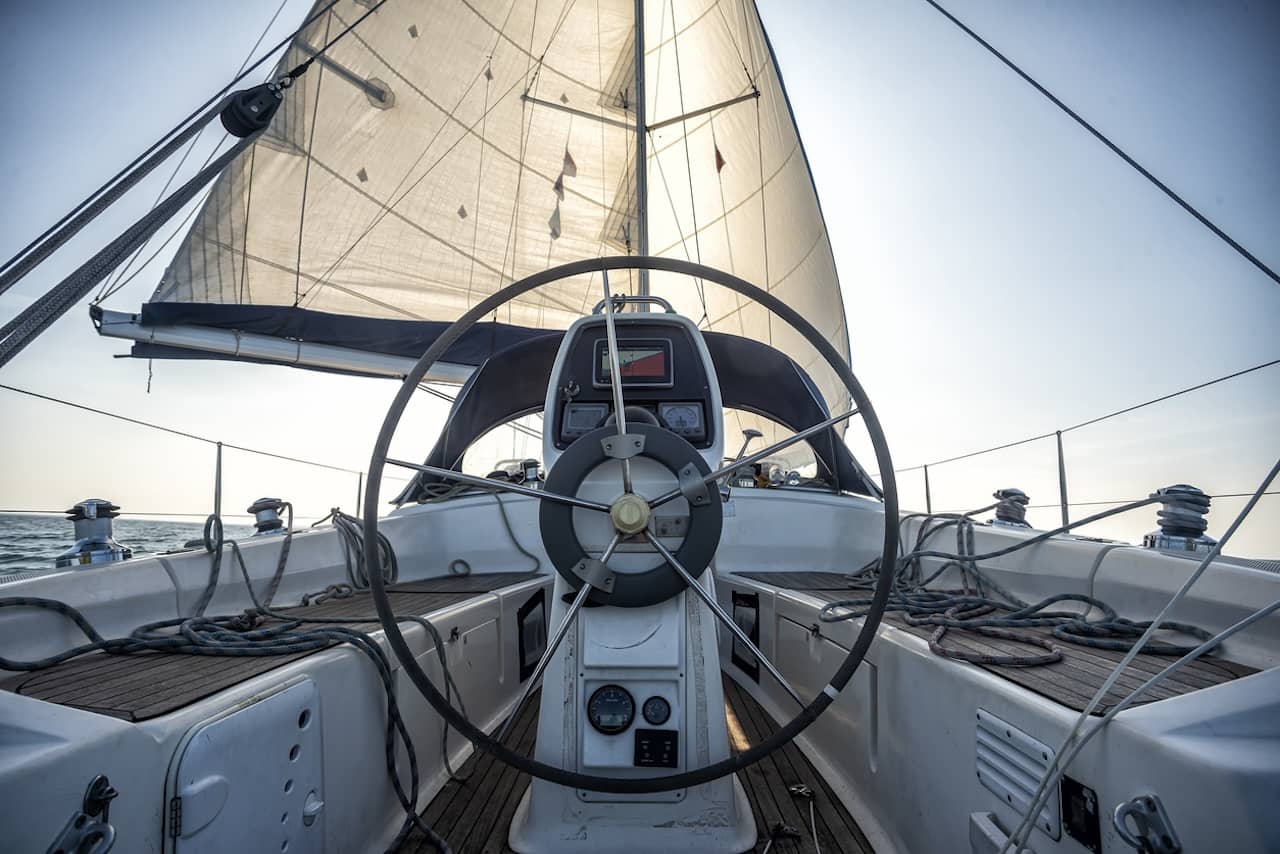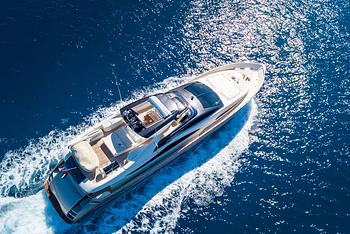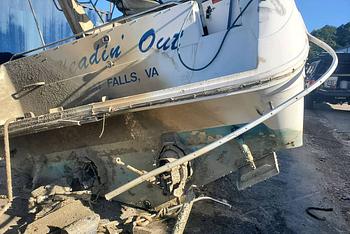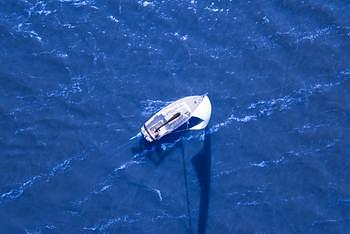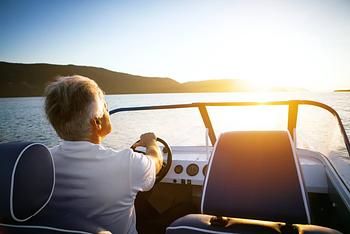To operate a small, non-motorized recreational sailboat in most places in the United States, an adult need not have a sailing license or boating safety certificate. However, because the 50 individual states have jurisdiction over their own waters, boat-operator licensing in the US is not as clear-cut as in the UK and Europe, and it has steadily evolved over the years. Some states require boat licenses or certifications for sailors of certain ages, and others have no requirements at all.
In previous articles, we’ve considered the question, do you need a boat license to sail a boat in the UK and in Europe? In this article, we’ll explore whether you need a license to sail a boat in the USA.
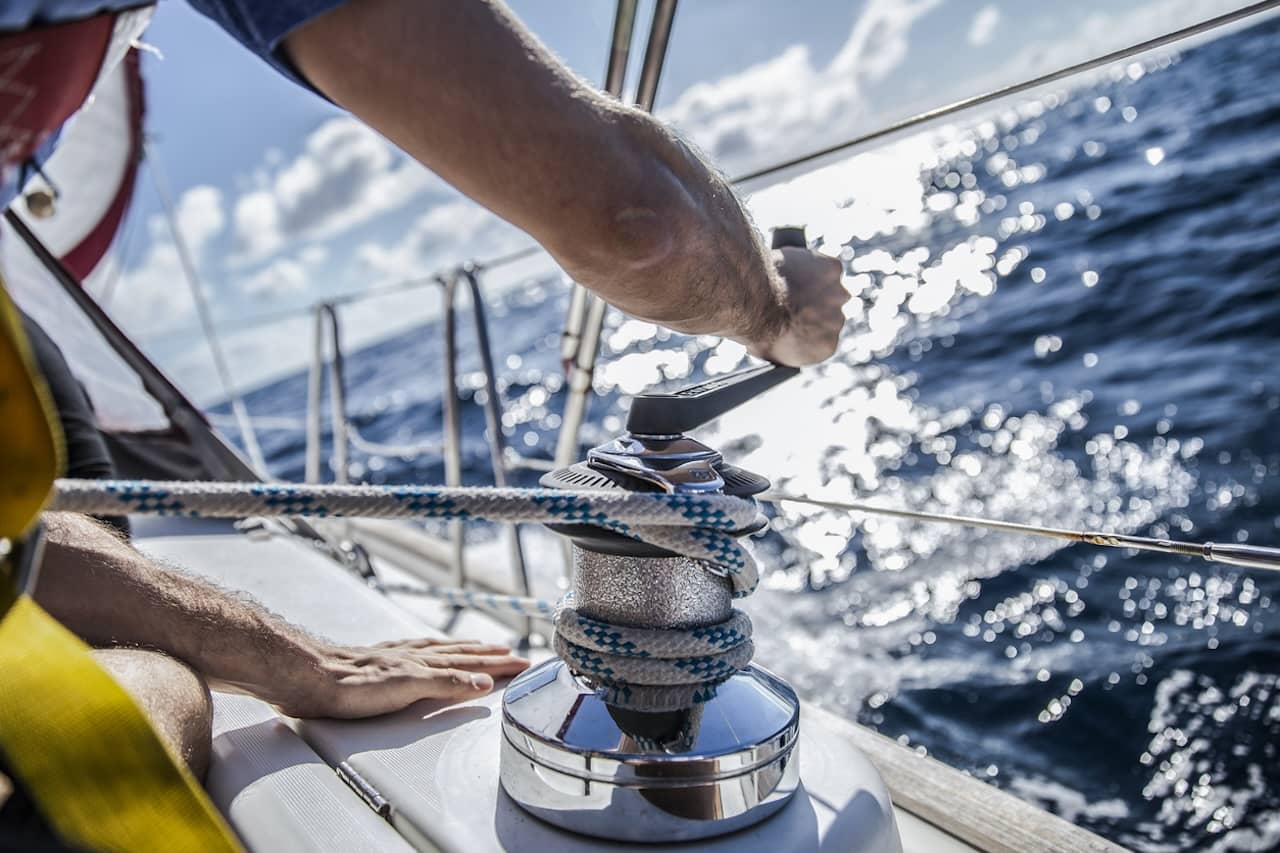
In the US, some states require boat licenses or certifications for sailors of certain ages, and others have no requirements at all.
States by State Boat-Operator Licensing Requirements
At present, there are five states with no legal requirement for adults to have sailing licenses.
- Alaska
- Idaho
- South Dakota
- Maine
- Arizona
Many other states don’t require licenses or certification to sail unless the boats have a motor of 10hp or more. Hawaii is one example.
Depending on where you live or where you sail, you’ll find each state has unique and individual licensing requirements and rules, mostly involving certifications that you completed a boating safety course. While only a small handful of states currently require a license or certification to sail, most will require the sailor to have taken some type of boating safety course. This has changed over time, as more and more states have put teeth in their boating-safety promotion.
As a result, many states now have the requirement that sailors born after a certain date must receive boating certification. For example, in Maryland, if you were born after 30th June 1972, you must have a certificate of boating safety education.
In Alabama, anyone born before April 28, 1954 is free to sail without any form of license, while in Delaware, a license is required for anyone born after January 1, 1978. In Georgia, anyone can sail a boat under 12 feet long, but larger boats with motors require a license, while in Mississippi a license is required for any boat operator born after June 30, 1980. Connecticut requires a Safe Boating Certificate (SBC) for motorized boats or sailboats longer than 19.5 feet while in Kansas, to operate any type of power or sailboat, a boater education card is required for those born after January 1, 1989.
In short, most states have a minimum age requirement for those wishing to sail unlicensed; some states such as New Hampshire regulate by the horsepower of the craft, 25hp or more requiring licensing rather than by age. The full list of state requirements is listed as follows:
- Alabama: License required if vessel is motorized unless born before April 28, 1954.
- Alaska: No legal requirements
- Arizona: No legal requirements
- Arkansas: Those born after December 31, 1985, must complete a safety course.
- California: Boater card required for those 60 years old or younger if vessel is motorized with more than 15 horsepower.
- Colorado: 14- and 15-year-olds must pass a safety course.
- Connecticut: You must obtain a Safe Boating Certificate (SBC) for motorized boats or sailboats longer than 19.5 feet.
- Delaware: Anyone born January 1, 1978 or later must pass a boater safety course to operate any motorized vessel.
- Florida: A Boating Safety Education ID Card is required for any motorized vessel with 10hp or more.
- Georgia: For any motorized vessel, those born after January 1, 1998 must have passed a boater safety course. Sailboats less than 12 feet long are among those excluded.
- Hawaii: Boater safety education required to operate a motorized vessel with more than 10hp.
- Idaho: No legal requirements
- Illinois: For motorized vessels with 10hp-plus, a boating safety certificate is required for anyone born on or after January 1, 1998.
- Indiana: The minimum age is 15 and operators under 17 years old are required to take a safety course. A valid driver’s license is required to operate a boat with more than 10hp but completing a boater education course and a state-issued ID card can substitute for non-drivers.
- Iowa: Operators aged 12 to 17 must take a safety course.
- Kansas: Those born after January 1, 1989, need to have a boater education card to operate any boat.
- Kentucky: Operators aged 12 to 17 must take a safety course to operate a motorized vessel with more than 10hp.
- Louisiana: Those born after January 1, 1984 need a boater education card to operate a vessel with a 10hp+ motor.
- Maine: No legal requirements for adults; if the boat is motorized, boaters age 16 and 17 are required to pass a boating safety course.
- Maryland: Those born after June 30, 1972 must have a certificate of boating safety education.
- Massachusetts: Teen operators must have a boating safety certificate.
- Michigan: Those born after December 31, 1978 must have a boating safety certificate to operate a boat.
- Minnesota: Operators aged 12 to 17 must take a safety course. No requirements for older boaters to have certification.
- Mississippi: Operators born after June 30, 1980 must complete a boating safety course.
- Missouri: Those born after January 1, 1984 must have a boater certification card.
- Montana: If the vessel is motorized with more than 10hp, an operator 13 or 14 years old needsa safety certificate.
- Nebraska: No boating license needed except a boating safety certificate is required for boaters born after December 31, 1985.
- Nevada: Those born after January 1, 1983 must complete a boating education course to drive a boat faster than 15mph—not needed for most sailboats.
- New Hampshire: Anyone over age 16 who drives a boat with 25hp or more must complete the Department of Safety's Boating Education Course.
- New Jersey: Anyone 13 years old or older must have a Boating Safety Certificate to drive a motorized vessel.
- New Mexico: To operate a sailboat or powerboat, anyone born on or after January 1, 1989 must complete a state-certified boat safety course.
- New York: Operators of motorized vessels born on or after January 1, 1978 are required to carry a safe boating certificate.
- North Carolina: To drive a boat with 10hp or more, boaters born on or after January 1, 1988 must pass a boating safety course.
- North Dakota: To drive a motorized vessel over 10hp, operators aged 12 to 15 must take a safety course.
- Ohio: To operate a boat with 10hp or larger engine, anyone born after January 1, 1982 must take a safety course.
- Oklahoma: Children 12 to 16 years old may operate a sailboat over 16 feet long (or any motorized vessel with 10hp or more) if they have passed a boating safety education course.
- Oregon: Teenagers (older than 12) and anyone operating a boat with over 10 hp must pass a safety course.
- Pennsylvania: Boaters born after January 1, 1982 who want to operate a motorized vessel with over 25 hp must pass a safety course.
- Rhode Island: Anyone riding a personal watercraft (Jet Ski) or anyone born after January 1, 1986 must pass a safety course to drive a vessel with 10hp or more.
- South Carolina: Boaters 16 or younger must pass a safety course if the vessel has 15hp or more.
- South Dakota: No legal requirements
- Tennessee: Anyone born after January 1, 1989 must pass a safety course.
- Texas: Those born after September 1, 1993 must pass a safety course to drive a sailboat longer than 14 feet or any motorized vessel with 15hp or more.
- Utah: No requirements for operating a sailboat.
- Vermont: Those born after January 1, 1974 must pass a safety course to operate a boat with a motor.
- Virginia: To operate a motorized vessel with 10hp or more, all boaters must pass a boating-safety course.
- Washington: Boaters born on or after January 1, 1955, must obtain a Washington Boater Education card.
- West Virginia: To operate a motorized vessel, those born after December 31, 1986 must complete a boater education course.
- Wisconsin: To operate any motorized vessel, those born on or after January 1, 1989 must pass a course.
- Wyoming: No legal requirements for non-motorized vessel operation.
- Washington D.C.: All boat operators must have a boating safety certificate.
Depending on where you live or where you sail, you’ll find each state has unique and individual licensing requirements and rules.
When is a United States Coast Guard Captain’s License Required?
A US Coast Guard license is not a legal requirement for most recreational sailors. However, it remains a popular qualification for those wishing to improve their sailing knowledge, in particular regarding maritime rules, nautical right-of-way rules, and regulations. Depending on the size of the boat, sailing instructors may be required to earn a Captain’s license due to strict rules relating to carrying passengers, skippering for hire, and the types of boats involved.
The most common type of Coast Guard license is called the Operator of Uninspected Passenger Vessel (OUPV). This allows the licensee to operate a vessel of 100 tons or less with up to six passengers on board, hence it is colloquially known as the “6-Pack License.”
Earning a 6-Pack requires the sailor to log 360 days on the water after their 16th birthday. A “day” is considered to be at least 4 hours on the water; 12 hours can be logged as 1.5 days. Knowledge of seamanship, rules, and regulations, navigation, etc. must also meet the minimum requirements and are formally tested. While by no means an easy task, once completed the sailor will have the right to be officially called “Captain”.
A Master license is required to captain an “inspected vessel,” which the Coast Guard inspects and verifies that it’s safe to carry more than six passengers. Read more
This article was published in January 2023 and updated in May 2024.
